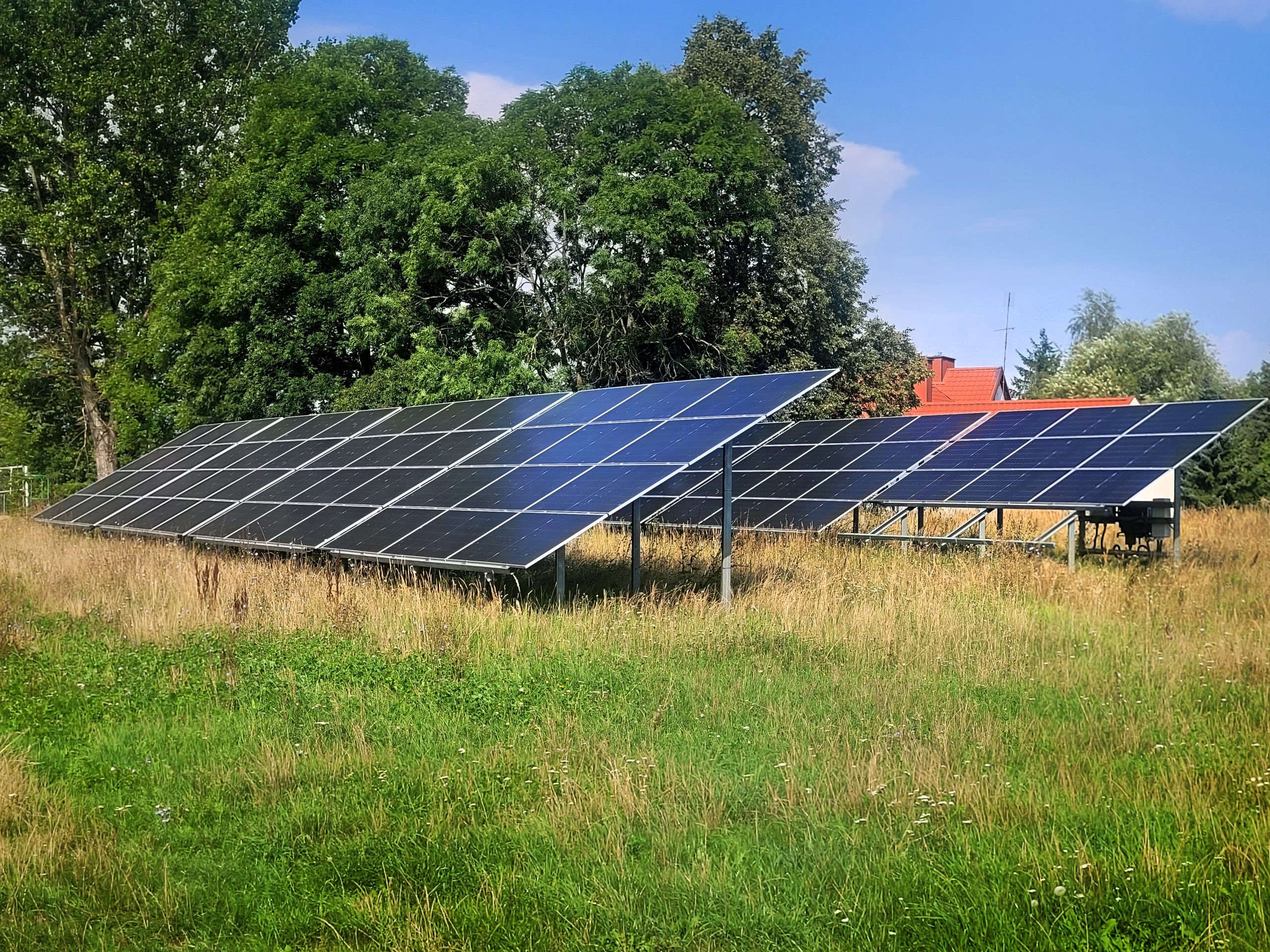ELECTRIC
school buses
a Case Study of Rzeczyca Municipality, Poland
Last year we delivered a school e-bus (along with the charging infrastructure) to the commune of Rzeczyca near Tomaszów Mazowiecki. This is yet another commune in Poland in which children are taken to school by a zero-emission Solaris bus. The order from Rzeczyca encompassed not only the delivery of the vehicle, but also the charging infrastructure along with a photovoltaic micro-installation, which helped this commune incurs hardly any operating costs. This is the first project of this type carried out entirely by our company.
Meeting the client’s needs
The school e-bus delivered to Rzeczyca is an Urbino 12 electric bus, with two motors, with a total power output of 250 kW and four Solaris High Energy batteries with a total capacity of over 300 kWh. However, what is unique about this school bus, compared to others, is the photovoltaic installation built on a plot set aside by the customer. Thanks to this, the electricity is generated locally, without the transmission losses typical for the power grid.
This solution is not only environmentally friendly, but above-all cost-effective. With such low operational costs for the vehicle, the financial investment in the photovoltaic micro-installation will quickly pay for itself.

The bus is charged by means of a plug-in charging station with an output power of up to 60 kW, equipped with charging cables with a CCS COMBO-2 connector. Due to the nature of school buses, which are used mainly in the morning and afternoon, the vehicle can be charged at midday, when the photovoltaic panels are able to generate the highest peak power during the day and ensure an optimal ratio of energy generated to energy drawn from the electricity grid. The total charging time of the bus greatly depends on the battery charge level, but does not take more than five hours. Complete charging of the vehicle’s battery is therefore possible at the middle of the day.
“With the huge costs of fuel and electricity prices, an ecological bus charged with photovoltaics turns out to be the cheapest vehicle in the commune to use. Replacing a diesel bus with an electric one shows that our commune operates ecologically and economically, which also has a positive impact on the image of the commune that cares about the well-being of the environment. In addition, the bus does not generate noise that is inconvenient for the residents and, importantly, it provides safe and comfortable transport conditions for school children – explains Marek Kaźmierczyk, head of the Rzeczyca commune.
The above-mentioned provisions significantly contributed to the profitability of the whole investment and, consequently, bolstered the customer’s desire to generate their own energy to power the school bus. Keeping the operational costs of the vehicle as low as possible was one of the authorities’ priorities.
Zero-emission in every aspect
An additional advantage of the photovoltaic installation in Rzeczyca is bifacial (double-sided) modules that have been applied there. In contrast to traditional modules, they can absorb solar energy on both sides of the panel, i. e. the bifacial modules also absorb and convert into electricity some of the solar radiation that is reflected from the ground and reaches the back of the module (the so-called albedo). The amount of additional energy gained per year in Rzeczyca thanks to this solution is up to 10% more than with traditional modules.

Public transport that is zero-emission not only at the point of use, but also when it comes to producing energy to power the vehicles, is in no way a distant vision. This is just the next milestone on the path towards e-mobility.
Electric school buses in Poland
The market for electric school buses has been flourishing in Poland over the last few months. More than ten Polish municipalities have already decided to purchase electric school buses. Solaris electric school buses are already running in Bielany, Działoszyce, Godzianów, Grabów nad Pilicą, Gręboszów, Krasnopol, Pałecznica, Przedecz, Rusinów, Skalbmierz and Troszyn.







